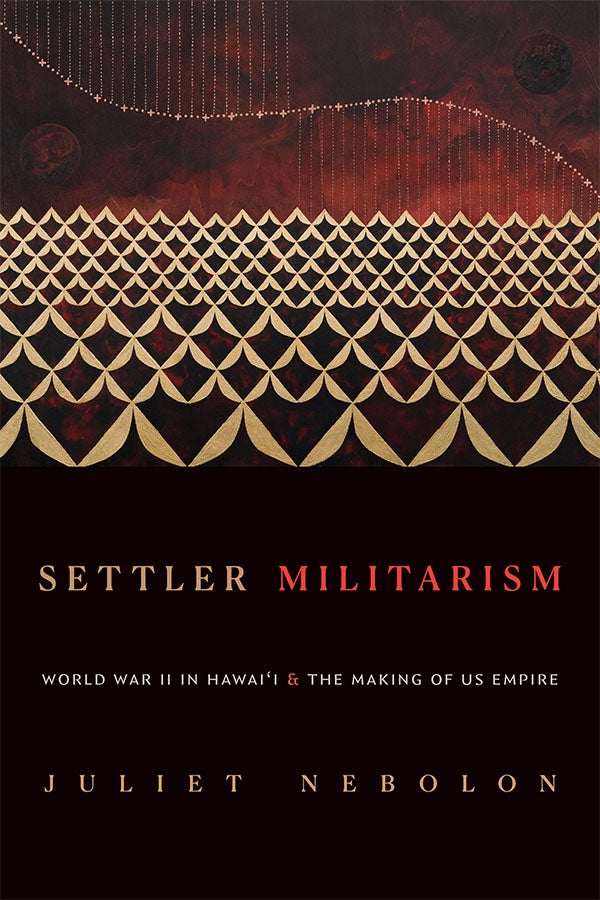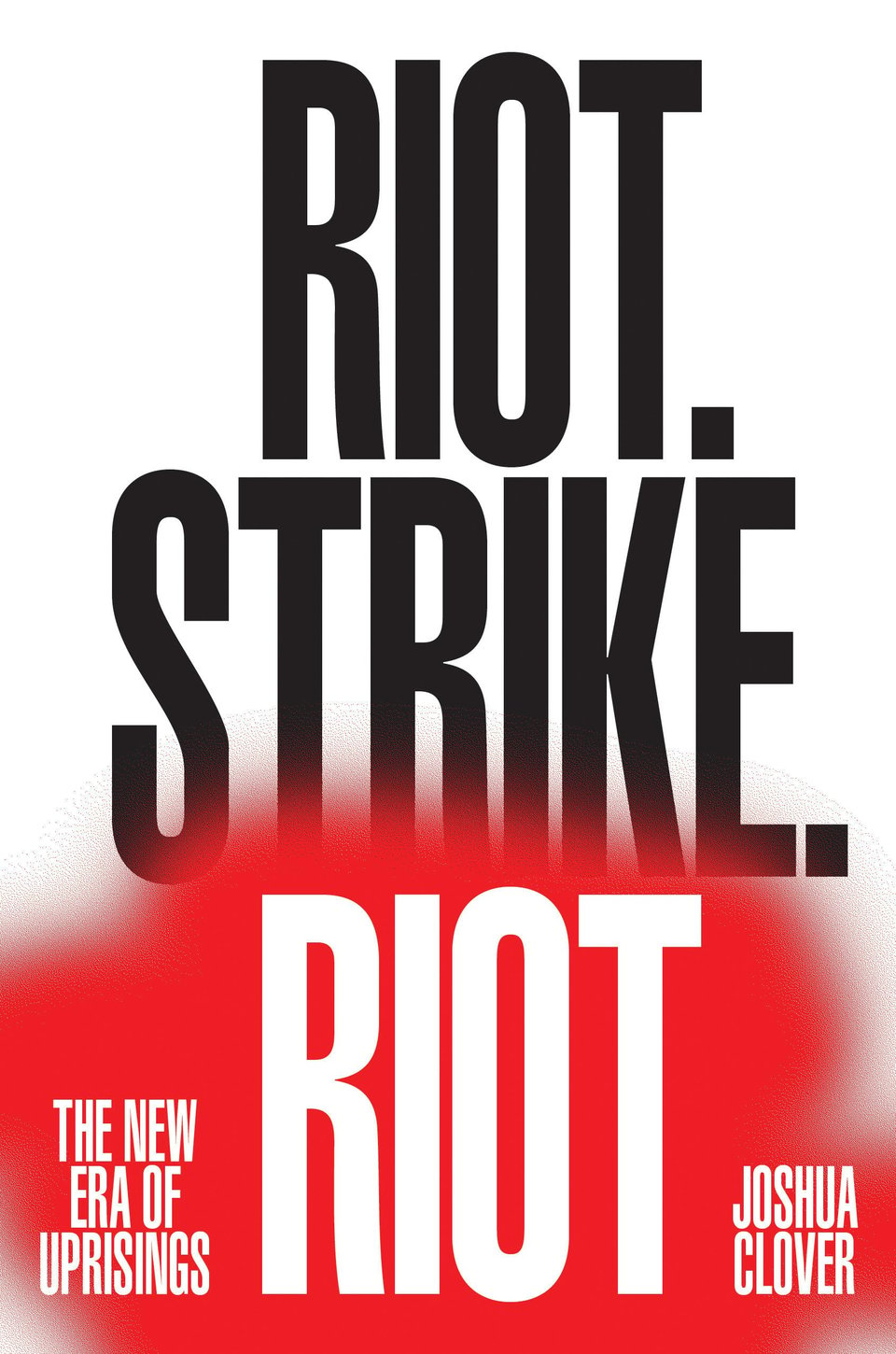Reading Group Week 21
🚨 Please read on for the link to the free ebook of the next book in our reading group 🚨
Hello. Happy Eid, and I hope you're staying safe.
This week we're finishing Settler Militarism: World War II in Hawai'i & The Making of US Empire by Juliet Nebolon

But first:
Our next book is Riot. Strike. Riot by Joshua Clover; Verso Books has made the epub of the book free, so you can order and download it here. You don't need to put in any payment info or anything - you'll get an email immediately with a link to download the ebook.
If you get the book for free, please consider donating to The Sameer Project directly - the funds raised through the Workshops 4 Gaza fundraiser go to The Sameer Project to try to keep Palestinians in Gaza fed and alive during Israel's ongoing imposed starvation, ethnic cleansing, and genocide.
You can also buy a physical copy of Riot. Strike. Riot by Joshua Clover here. 
Readings
This week, let's round out the book with Chapter 5: "Settler Military Camps": Internment and Prisoner of War Camps across the Pacific Islands; and also the conclusion: "The Making of US Empire".
| Week | Date | Reading | Call |
|---|---|---|---|
| Week 1 | May 12 | Intro + Chapter 1 | May 17 |
| Week 2 | May 19 | Chapter 2 | May 24 |
| Week 3 | May 26 | Chapter 3 | May 31 |
| Week 4 | June 2 | Chapter 4 | June 7 |
| Week 5 | June 9 | Chapter 5 + Conclusion | June 14 |
Reflections
Chapter 5: "Settler Military Camps": Internment and Prisoner of War Camps across the Pacific Islands
These hearings were ostensibly ordered in the service of "justice," yet, as noted above, they were also accorded as a matter of pragmatism, by a government dependent upon the labor of its potential prisoners for the construction and maintenance of its bases and plantation economy. (pg 135)
As scholars such as T. Fujitani, A. Naomi Paik, and Kelly Lytle Hernández argue, internment and other forms of racialized incarceration should not be analyzed as anomalies within the US liberal democracy but rather should be understood as complicit with the administration of state violence against and confinement of racialized peoples both inside and outside of US borders. (pg 137)
... government documents referrred to internees as "evacuees" and used language such as "relocation center" or "resettlement community" instead of "internment camp" or "concentration camp" ... camps in Hawai'i ... did not attempt to replicate settlements, towns or communities. The Department of War separated men and women in different compounds, did not intern children, and provided minimal community facilities. ... Those imprisoned were explicitly called "internees of war" or "prisoners of war," and the camps were called "internment camps" or "concentration camps" in military documents. (pg 140)
The remaining 7,000 prisoners of war held in Hawai'i would be released to their home countries of Japan, Korea, and Okinawa later that year [1946], but at that point there were at least 100,000 prisoners still held in camps in the Philippines, Okinawa, Carolines, and the Mariana Islands. (pg 150)
There's a lot to find pretty stunning in this chapter, particularly if you've had a pretty lackluster education of colonial history in Hawai'i (as I admittedly have), but some of these details still stand out as especially shocking - one of them being the juxtaposition of the Office of the Military General exploring the feasibility of imprisoning every Japanese person in Hawai'i, and only backing away from the idea because 95% of the "skilled labor" (another topic) was performed by Japanese people; and then turning around and saying that they were doing hearings to determine whether to imprison Japanese people "in the service of justice". And the duplicitous nature of publicly calling internees "evacuees" and "resettlement communities" while the military obviously understood and regarded these people and the facilities as "internees" in "concentration camps" (on page 140). All it takes for liberals to go along with abject, dehumanizing violence is a rebranding; that doesn't seem to have changed in 70 or 80 years.
I'm writing this on Monday morning as protests in LA seem to be ongoing, as ICE and other police agencies instigate violence and destruction and attempt to abduct people from their workplaces, homes, and communities. Dr. Nebolon's observation/crystallization of the idea that "racialized incarceration should not be analyzed as anomalies within the US liberal democracy but rather should be understood as complicit with the administration of state violence against and confinement of racialized peoples both inside and outside of US borders" is particularly salient right now, and I'm grateful that we happened to be reading this chapter at this moment.
I hope people watching what's happening in LA and across the country understand that this violence by ICE, DHS, and all policing in the US is not an exception or an "anomaly" of America, but complicit and central to America, with roots reaching back enough that they were distinct and firmly rooted in Hawai'i 80 years ago. I'm reminded that Zionism didn't spring into emergence 75 years ago - as Refaat Alareer said, it was the product of decades of writing and imagination and convincing. Just like the settler colonial violence we're seeing right now, today.
I also wanted to underscore the figures on page 150, that there were more than 100,000 prisoners in the Pacific islands in 1946, when the US was ostensibly "shutting down" the internment camps that they had operated in Hawai'i. I didn't even quote any of the text that Nebolon offers to underscore the nuclear experiments the US Military conducted on the Marshall Islands, and the decades of gaslighting and lies they told the people there to avoid taking responsibility for the myriad symptoms of intense radiation exposure to which they exposed the people there.
Share your reflections
This is the last opportunity to chat about Settler Militarism before we move on to Riot. Strike. Riot by Joshua Clover. I'd like to hear your thoughts, or any connections you're drawing, if you're up for it.
If you'd like to chat with me and/or the rest of the people in the Signal group chat, I'd love to see you there.
Otherwise, let's chat on Saturday at 12pm ET, during the weekly video call.
Next Book
Please buy Riot. Strike. Riot by Joshua Clover from Open Books (or download the epub from Verso Books for free) if you haven't already.
If you buy the book from Open Books, the proceeds will go to Palestinians in Gaza via The Sameer Project.
If you download the epub book from Verso Books, or if you just happen to have extra funds, please donate directly to the Sameer Project. If you don't have the money for that right now, please consider sharing this reading group with a friend.
Support the reading group
You can also support the reading group if you have a few dollars to spare per month. Don't worry if you can't support, but if you can, it would help.
Okay, that's everything. This is the 4th book we've finished. Thank you so much for following along and buying books through the Workshops 4 Gaza fundraiser. I'm looking forward to hearing all of your thoughts about Settler Militarism by Juliet Nebolon now that we're finishing it; and I hope to see you next week as we start Riot. Strike. Riot by Joshua Clover.